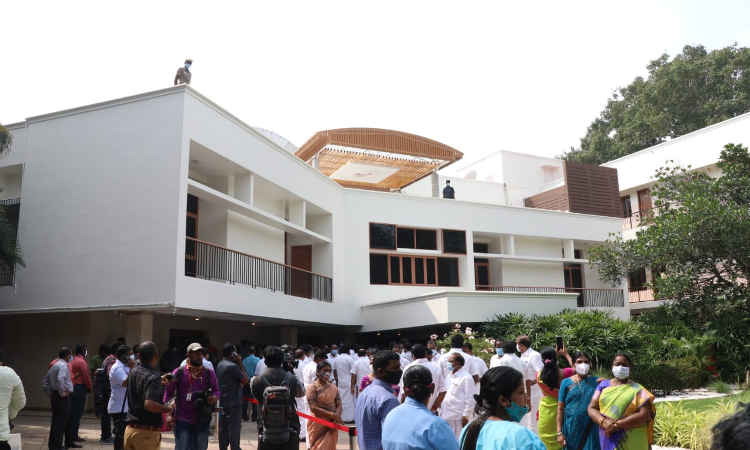Acquisition Of Jayalalithaa's 'Veda Nilayam' : Madras HC Reserves Judgment On AIADMK's Appeal
Sebin James
21 Dec 2021 9:49 AM IST

Next Story
21 Dec 2021 9:49 AM IST
In the third party appeal against the single judge order quashing land acquisition proceedings of 'Veda Nilayam', Madras High Court has reserved its judgment after hearing the appellants, original writ petitioners and the state in detail. While reserving the judgment, a Division Bench of Justice Paresh Upadhyay and Sathi Kumar Sukumara Kurup underscored that there was no doubt about...
